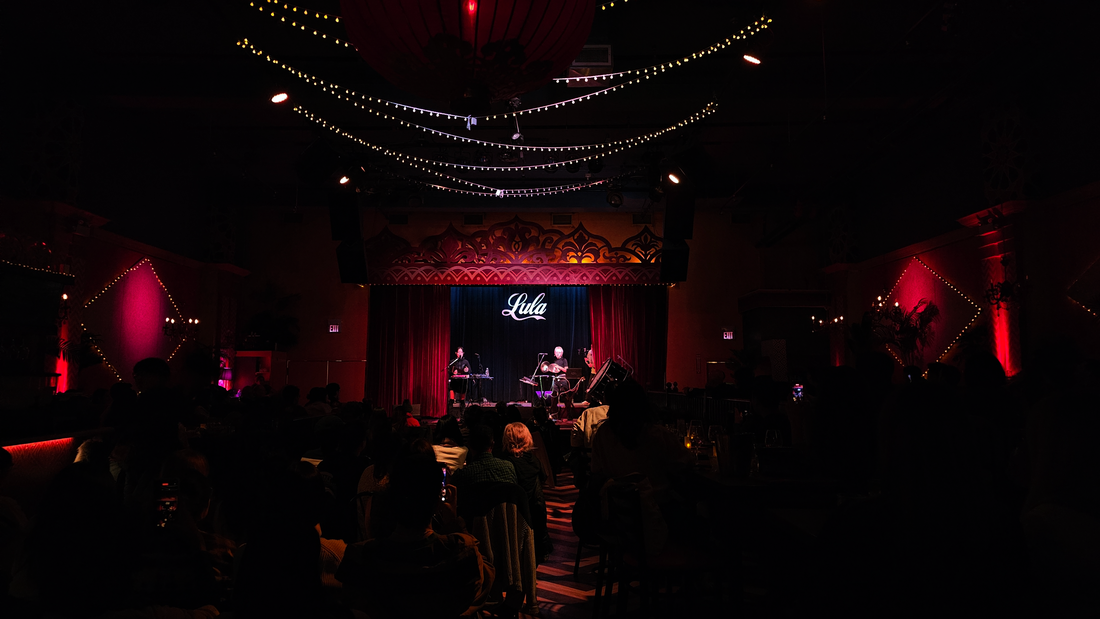As the melodies and rhythms of the "Sound of Korea" swirled through the air of Lula Lounge, the rich tapestry of Korean music's history was a silent yet potent presence. Every chord and note seemed to carry whispers from the era of King Sejong, a time when music was a haven of solitude, a personal fortification against the world's tumult. Traditional instruments, like the gayageum and buk, which have been the heart of 'gugak', Korean traditional music, resonated with a timelessness in their modern interpretations.
Having recently explored the hauntingly beautiful sounds of the haegeum at the Korean Cultural Center in Ottawa , I found myself immersed in thoughts about the evolution of Korean music. From the contemplative and introspective melodies of King Sejong's time, where music was a quiet companion to the soul, Korean music has blossomed into a vibrant, infectious force. This transition, from the introspective solitude of traditional tunes to the exuberant, communal celebration of contemporary sounds, was painted vividly throughout the evening.
As the event at Lula Lounge unfolded, it stood as a poetic testament to the ever-flowing river of Korean music. It was a night that celebrated not just music but the rich narrative of cultural evolution. Each performance was a vibrant brushstroke that added depth and color to the canvas of Korea's musical history, revealing a landscape far more intricate and varied than the well-known vistas of K-pop.
Leaving the venue, I carried with me the infectious energy and profound insights of the night. The event was more than a musical showcase; it was a poetic journey through the heart of Korean culture, from its historical depths to its dynamic present. It was a reminder of music's power to transcend time, to transform solitude into shared joy, and to enchant the soul. "Sound of Korea" was not just an event; it was a vibrant, soul-stirring experience – a journey through the many facets of Korean music, from its introspective beginnings to its infectious, communal expressions today.
The Sound of Korea: At Toronto's LULA Lounge

In the heart of Toronto, a city pulsating with cultural vibrancy, the Lula Lounge came alive this past Sunday, November 19th, with the eclectic and pulsating rhythms of "Sound of Korea." This wasn't just another night in the city; it was a kaleidoscopic journey through the soul of Korean music, where tradition twirled with modernity in a dance of exhilarating melodies and rhythms.
As I stepped into Lula Lounge, a venue celebrated for its embrace of global music, the air was electric with anticipation. The lounge, a melting pot of cultural exchanges, set the stage for an evening where the traditional sounds of Korea met the innovative beats of contemporary genres.
The curtain rose with the enchanting duo of Song Yi Jeon and Vinicius Gomez. Song Yi Jeon, with her roots in South Korea and a flair for jazz vocalese, melded her voice with the rhythmic strums of Brazilian jazz guitarist Vinicius Gomez. Their performance was a captivating dialogue between continents, a blend of serene jazz vocals and warm, inviting guitar melodies that floated through the room, enveloping us in a cocoon of global jazz fusion.
Then, in a burst of vibrant energy, the Soojin Suh Quartet took the stage, initially as a trio. Soojin Suh, a dynamic force from Seoul's music scene, led her group in a riveting jazz escapade. The room was charged with their lively and playful jives, each composition a spirited expression of joy and creativity. When the saxophonist joined, the performance morphed into an exhilarating spectrum of acid jazz. The quartet was a whirlwind of sound and rhythm, a jubilant celebration of jazz in all its forms — from the deep roots of traditional Korean music to the unrestrained freedom of modern improvisation.
The finale of the evening was the electronic duo HAEPAARY, whose performance was a modern reinterpretation of traditional Korean music. Many aspects of HAEPARRY's performance I felt akin to the joyful and spirited performances of Ak Dan Gwang Chil (ADG7), a different group that did not play this evening, but that I have had the pleasure to hear live, twice now, thanks to the Embassy of Korea here in Ottawa and also Toronto. It goes without saying that HAEPAARY's approach, though, was uniquely their own — a duo transforming traditional melodies into contemporary electronic masterpieces. Their performance was a tapestry of sound, weaving the ancient with the new in a vibrant display of musical artistry. From a swing, to a jive, to full blow rock and roll, it was magical to say the least.
You can find the original post here


